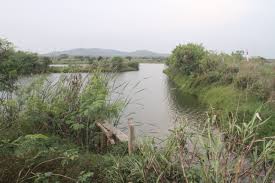As the world celebrates World Wetland’s Day, the Forestry Commission has expressed concern over the rate at which the country’s wetlands are disappearing, three times faster than forests.
Wetlands are critical for human survival as they provide eco-system service, including fresh water, food, fibre, medicines and fuel, mitigate climate variabilities, and protect man from natural disasters.
Mr Hugh Clement Adokwei Brown, the Acting Chief Executive, Forestry Commission, said: “Wetlands filter pollutants, and support livelihoods, hence the need for conservation and restoration to regain its ecological character.”
At a ceremony to commemorate World Wetlands Day 2025 at Ada-Foah in the Greater Accra Region, Mr Brown said wetlands in Ghana faced numerous challenges, which threatened their sustainability and the benefits they provided.
World Wetlands Day is celebrated on February 2 to recognise the importance of wetlands to planet’s health, biodiversity and human well-being.
The theme for this year is: “Protecting Wetlands for our Common Future.”
“Some of these challenges are due to limited awareness and education on wetlands conservation. Many Ghanaians are unaware of the importance and benefits of wetlands, which has led to neglect and degradation,” he Mr Brown said.
Climate change was altering wetland hydrology, leading to changes in water levels, flow, and quality, among other things, affecting their habitat.
Ghana had been a signatory to the Ramsar Convention since 1988, which focused on the conservation of wetlands of international importance, he said.
It was important that the people adopted compatible practices that maintained the natural properties of the ecosystem to derive the maximum benefits.
Mr Brown said the Ministry of Lands and Natural Resources launched a National Land Policy of the Wild Animals Preservation Act 1961 (Act 43) – Ramsar Site Regulations (1999) to recognise wetlands as crucial habitats.
The Rapid Response Unit of the Forestry Commission had been tasked to conduct regular monitoring activities to clamp down on illegal activities in wetlands and train field staff for routine monitoring to ensure their sustenance and conservation.
The Commission intended to partner with investors to develop the untapped tourism potential of wetlands, he said, adding: “Tourism initiatives in and around wetlands can bring many benefits at both the national and local levels.”
“Let us work together to address the pressing challenges facing wetlands, which range from habitat destruction and pollution to climate change, and over-exploitation, for our common future.”
Dr Joseph Boakye, the Executive Director of the Wildlife Division, Forestry Commission, said the Division was working diligently to combat challenges faced by Ghana’s wetlands through the establishment of Community Resource Management Area.
In collaboration with their partners, the Division was implementing wetland restoration projects, aimed at rehabilitating degraded areas, he said.
Dr Boakye said the Wildlife Division was exploring the creation of new protected wetland areas in Ghana, to help build resilience to climate change impacts, and help with flood control and biodiversity conservation.
“To ensure the long-term sustainability of Ghana’s wetlands, the Division will continuously take several important steps by collaborating with local communities, NGOs, schools and other stakeholders to support wetland conservation efforts,” he added.
GNA





















